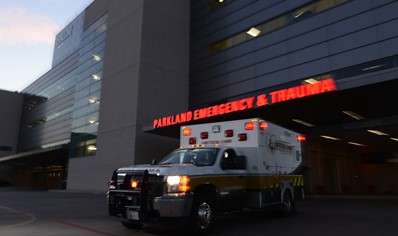
A Family Medicine Specialist Explains: How to Manage High Blood Pressure
October 13, 2023
You might have high blood pressure—and not even know it.
In fact, about one in two adults in the United States have high blood pressure with no symptoms. That’s why the condition, also known as hypertension, is often called “the silent killer.”
High blood pressure increases your risk of having a heart attack or stroke. It can also lead to other serious health conditions.
The good news is that high blood pressure is easy to diagnose. If your pressure is high, you can make lifestyle changes or take medication to lower your numbers and your health risks.
Learn more about the importance of managing high blood pressure. Read this helpful information from Dr. Zafreen Siddiqui, MD, a family medicine specialist in north Texas.
For more detail, watch Dr. Siddiqui in this video.
What is high blood pressure?
Your heart pushes blood through your body with every beat, like water moving through a network of connected hoses. As it pushes against the walls of your arteries and veins, the force of the pushing is measured as blood pressure.
If the force is greater than it should be, that’s known as high blood pressure.
How is blood pressure measured?
Blood pressure is measured in millimeters of mercury (mm Hg). Your blood pressure reading will include two numbers.
The higher number shows the pressure when the heart beats. The smaller number shows the pressure when the heart rests.
Check out the chart below to see readings considered normal and abnormal.

What steps can I take to lower my blood pressure?
If your doctor tells you your blood pressure is slightly or much higher than normal, you can make changes to your daily routines to lower your risks.
The most important step is to get started. In a few months, with daily good habits, you will feel—and be—healthier.
- Reach a healthy BMI/weight.
- Exercise regularly.
- Eat a healthy diet.
- Reduce salt (sodium) in your diet.
- Limit alcohol intake.
- Quit smoking.
- Get a good night's sleep.
- Reduce stress.
- Monitor your blood pressure at home.
- Get regular checkups.
- Find a support system.
Complete your annual Health Risk Assessment—earn $20 in Parkland rewards!
As a Parkland Community Health Plan member, you can earn reward points for completing certain wellness activities. Then, you can spend those points on items in the Rewards Catalog.
Want to earn $20 in rewards points?
Simply complete a yearly Health Risk Assessment on the Member Portal. You will receive your reward points in approximately three months.
Call 214-393-7003 (TTY: 1-800-735-2989) to learn about the Parkland Health Risk Assessment reward.


